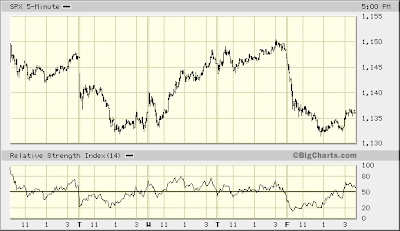Highlighting the fact yesterday that, Team Fraud increasingly finds its position in jeopardy, I neglected to mention one telling sign of the times is JP Morgan Chase CEO Jamie Dimon's whining, "I'm getting tired of the constant vilification..." Apparently, the strain of having lost ability to paper over past securitization frauds with new ones is taking its toll. Not just on Dimon, but on his company's balance sheet, as well.
Of course, no shortage of Monetarist Monkeys still cling to fantasy believing our every financial problem can be solved with an ever-larger wall of money. Trouble is insurers of risk appear to recognize that, the lender of last resort is becoming overexposed in its desperate attempt at staving off insolvency of huge swaths of credit securities.
This begs a most relevant question...
Has it occurred to anyone that, at the core of everything finance touches ultimately lies confidence? Indeed, were you to study any number of prior financial panics, you invariably would discover confidence is a most critical matter whose relevance is given vague consideration at best.
Surely, once a crisis overwhelms the prevailing status quo, restoration of confidence is no small dilemma easily resolved. Likewise, no mere financial backstop can by itself soon restore conditions to a pre-crisis state. This appears the inescapable conclusion looking back at notable panics occurring during the late-19th and early-20th centuries.
Indeed, more recently, too, following the post-Y2k bursting of the so-called tech bubble, credit securities made on Wall Street (a la "the Greenspan put") were inflated to the stars. Yet this ocean of new "money" (described by Goldman Sachs' Robert Hormats as "the greatest flood of liquidity since Noah) did not find its way into NASDAQ-listed issues in any manner resembling pre-crash mechanics. Why not? Because confidence in the dream spun during NASDAQ's Y2k run-up was in ruins — crushed by the rush out of securities whose prices had, in fact, reached fantastic levels lacking any durable credibility well-founded in historic reality.
This same dynamic involving lost confidence is likely to vex investors trapped in belief real estate prices generally travel on a one-way street. Again, no financial backstop, no matter how seemingly creditworthy, can soon restore confidence lost as a result of some profound defiance of sound financial judgment.
Yet none of the dashed dreams upon which financial panic already has visited holds a candle to the incredible fantasy that is the "full faith and credit" of the U.S. Treasury backing the dollar reserve, global financial system in its present state. The very idea set upon a nation dependent on huge capital inflows is nothing short of laughable.
Of course, you are free to regard this statement as being nothing but baseless fear mongering. However is not the hallowed free market, itself, effectively saying the very same thing as I am? Sure, sovereign CDS might command a higher premium over investment grade corporate CDS as a consequence of a rather transparent effort to coerce a spirit of austerity among sovereign governments. Yet that such coercion is needed at all — that freeing up capital immediately via cuts in government spending, rather than relying on increases in the global economy's wealth producing capacity — speaks volumes about confidence backing a still grossly over-leveraged physical economy whose collapse thus far presents woefully little sign of reversing.
Panics occur for good reason. Generally speaking, imbalances built up in both the physical and financial economy lie at the root of causes leading to such sudden evaporation of confidence as precipitates an extraordinary wave of asset sales. The most recent instances of this no doubt have many precedents in effect, yet in cause there scarcely are any modern parallels. What's more is we are witnessing firsthand how persistent resistance to declaring an untenable arrangement bankrupt tears away at the most critical underpinning of all: confidence. Were truth otherwise, then the need to know the full extent of issues surrounding the bailout of AIG wouldn't be so pressing upon more thoughtful members of the U.S. Congress. Lacking confidence in the viability of what has been done, if these should be silent, then quite possibly the very stones would cry out (were, say, CDS premium disparities thought unworthy of transmitting an alarming message about the creditworthiness of the lender of last resort).
Despite the many extraordinary measures taken thus far to fill the void left by the collapse of the securitization market, confidence by no means has been restored. If anything, mistrust has only deepened amidst largely unresolved imbalances, now that the sovereign backstop card has been played.

Today's steep drop very well could be the start of an anticipated move back down to March '09 lows. That the distance might be covered in a New York minute owes to profound vulnerabilities whose exposure is threatened by an open airing of circumstances surrounding the AIG bailout, as well as other related affairs whose impact made 2008 a most extraordinary year. That 2009's "Banker of the Year" doth already loathe vilification thus far earned is fair warning to fear what men at their wits end might do in the midst of added public pressure.
Beyond the threat of fraud exposed lies the realm of profound imbalances such as are likely to precipitate panic selling in the face of fading confidence in the lender of last resort. Despite there being no way to ascertain the moment at which panic is likely to take hold, the very fact that fragile confidence rests upon an explosive powder keg that, any vested interest, well- or ill-intended, could detonate in the course of what might be seen in relevant circles, rational action (given present circumstances), is all the reason I need to remain risk averse.

* * * * *
© The Risk Averse Alert — Advocating a patient, disciplined approach to stock market investing. Overriding objective is limiting financial risk. Minimizing investment capital loss is a priority.
Analysis centers on the stock market's path of least resistance. Long-term, this drives a simple strategy for safely investing a 401(k) for maximum profit. Intermediate-term, investing with stock index tracking-ETFs (both their long and short varieties) is advanced. Short-term, stock index options occasionally offer extraordinary profit opportunities when the stock market is moving along its projected path.
Nothing is set in stone. Nor is the stock market's path of least resistance always known. More often than not, there are no stock index option positions recommended.
 There's an easy way to boost your investment discipline...
There's an easy way to boost your investment discipline...Get Real-Time Trade Notification!



















